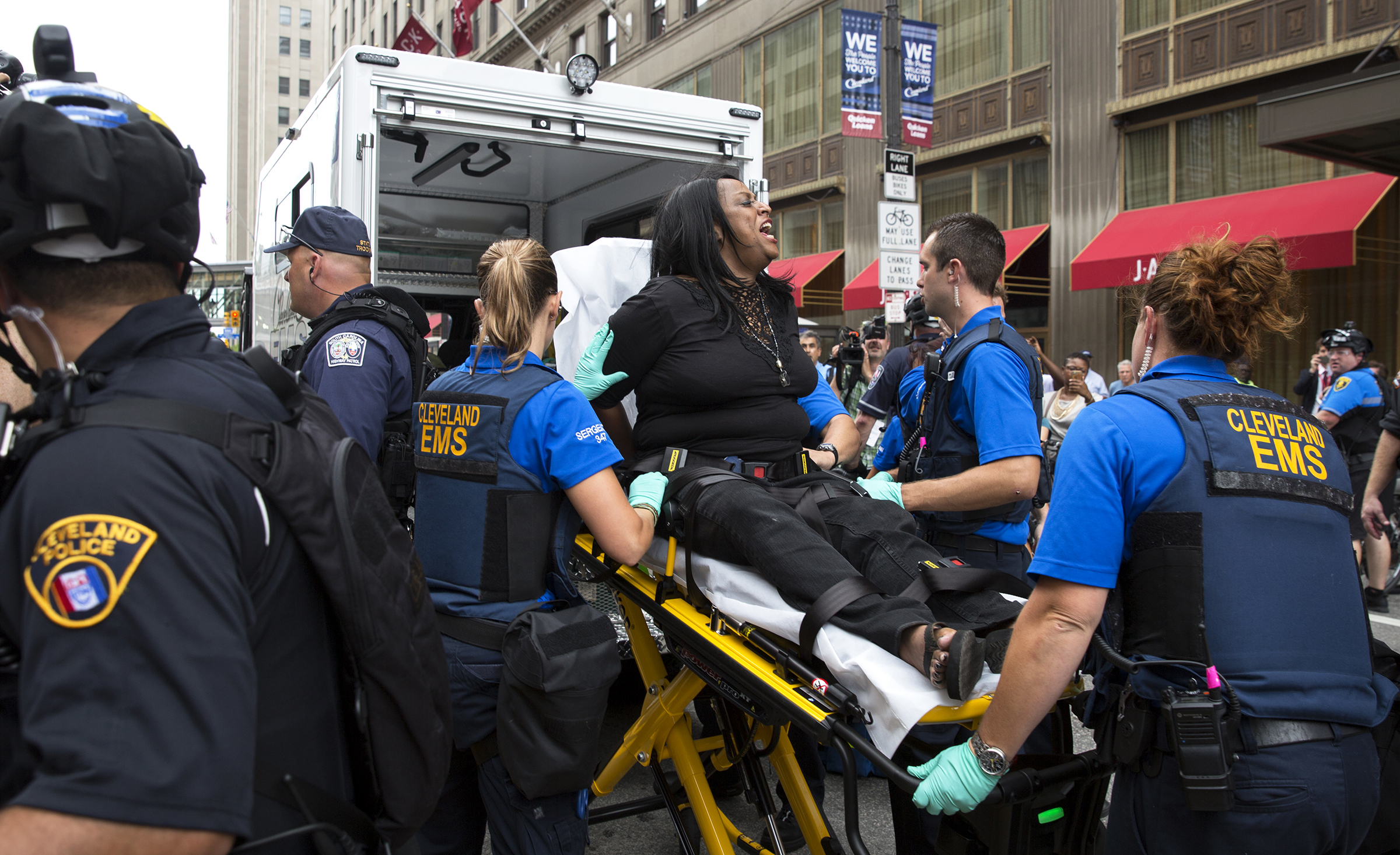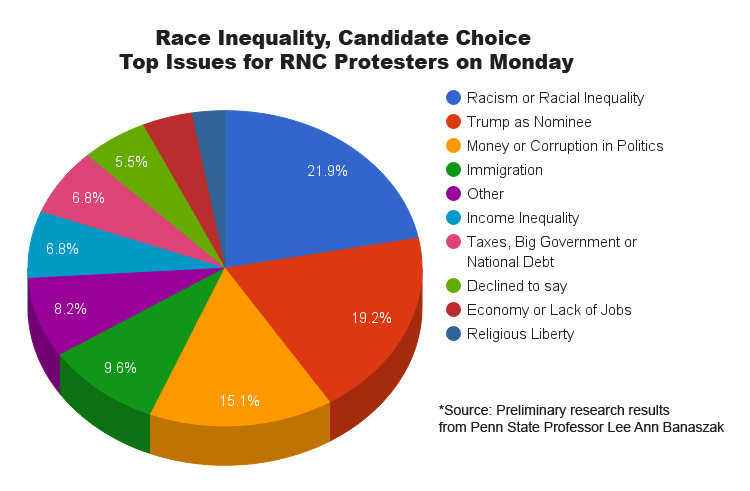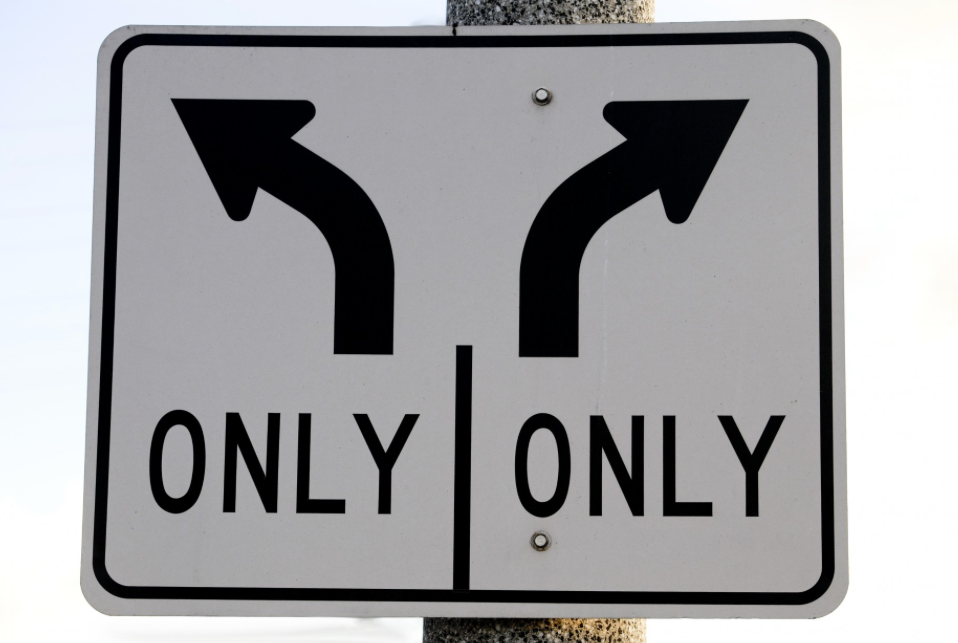
Activist Kathy Wray Coleman, of Cleveland, who was handcuffed by police during a protest at the Republican National Convention on Monday, is transported to an ambulance after she complained of chest pains. Coleman is a leader of the Imperial Women’s Coalition. (Photo by Antonella Crescimbeni/Penn State College of Communications)
Preliminary findings from political science Professor Lee Ann Banaszak and Penn State students who are polling protesters at the Republican National Convention show that racism and racial equality and Trump as the Republican Party nominee are the top reasons people are taking to the streets in Cleveland.
On Monday — the group’s first day at the convention — the researchers surveyed three events: “End Poverty Now March,” “Stop Trump March” and “America First Movement Rally.”
Very preliminary results showed that “people outside the convention were slightly less diverse than the American population, with fewer Latinos/Latinas and African-Americans than we find in the general population,” Banaszak said. “Nonetheless, racism and racial inequality was the most often mentioned issue among the people sampled outside the convention.”
Additionally, Banaszak said that fewer people turned out for the events on the first day of the convention than originally expected. The event sizes ranged from about 200 to 500 or 600 people and original estimates of predicted turnout had been between 5,000 and 15,000 people, she said.
Members of the research group spoke with 111 individuals on Monday, and 70 percent agreed to be interviewed for the research project. Their work will continue through the end of the RNC convention and into the Democratic National Convention on July 25-28 in Philadelphia.
Banaszak said that the researchers’ survey method is different from past polling methods in that it helps take the personal bias out of the polling. Additionally, some preliminary data will continue to be available quickly because the researchers are submitting their findings through iPhones to a cloud-based database.



